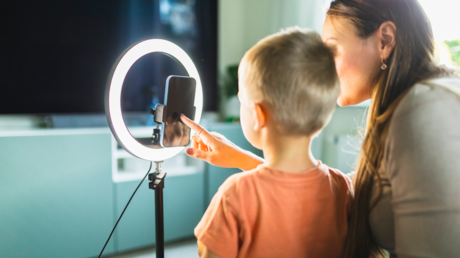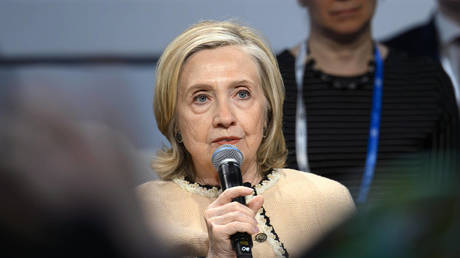
Parents who post so-called ‘kidfluencing’ content online will now be required to pay their children
Illinois has become the first state in the US to pass a law guaranteeing that child social media influencers will receive a share of the profits generated from content posted online by their parents or guardians.
The bill was passed on Friday after initially being filed in Illinois’ General Assembly in February.
“The rise of social media has given children new opportunities to earn a profit,” Senator David Koehler, a Democrat who sponsored the bill in the Illinois legislature, said last week. “Many parents have taken this opportunity to pocket the money, while making the children continue to work in these digital environments.”
Koehler added that the idea for the bill, which will apply to children under 16 who appear in monetized content online, came from a 15-year-old content creator in his district.
Video blogs, known as ‘vlogs,’ as well as other online content on platforms like YouTube and TikTok, have generated large audiences in the so-called “sharenthood” industry – in which parents provide advice to strangers online about various aspects of childcare in video clips often featuring their own children.
“I realized that there’s a lot of exploitation that can happen within the world of ‘kidfluencing,’” said Sheyra Nallamothu, the teenager who first proposed the bill to Koehler, according to ABC News. “And I realized that there was absolutely zero legislation in place to protect them.”
Some ‘kidfluencing’ videos can receive hundreds of thousands of views online and can generate tens of thousands of dollars in advertising revenue. However, there has been only minimal regulation of the ever-developing online cottage industry.
Many states across the US already require parents to reserve earnings generated by their children in more traditional media avenues like film and television but the law, which is set to come into effect in Illinois next July, will be the first to directly affect young social media creators.
The specifics of the law, which will only apply to online content created in the state of Illinois, will mean that under-16s will be entitled to a share of revenue from content that generates at least 10 cents per view. The children must also feature in 30% of content published online over a 30-day period.




